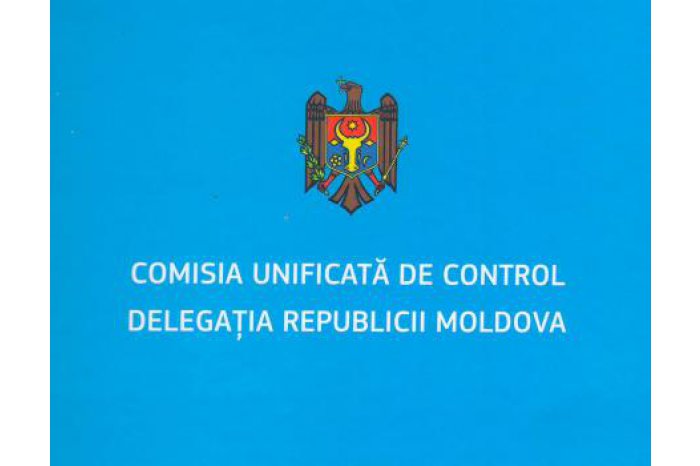Joint Control Commission holds meeting in Bender after break
18:24 | 10.09.2020 Category: Official
Chisinau, 10 September /MOLDPRES/ - The participants in a today meeting of the Joint Control Commission (JCC) were to review the evolution of the situation in the Security Zone in the last six weeks, as well as other up-to-date issues, the Reintegration Policies Bureau has reported.
Yet, the long-lasting discussions on the agenda did not led to its approval, as the Transnistrian side blocked the inclusion of the issue on the carrying out of a comprehensive analysis of the present situation in the Security Zone, as a result of the appearance of the ‘’border guards’’’ posts starting from 1 May 2019.
Moreover, while trying to take advantage of the absence of the co-head on behalf of Russia, who was on a business trip, according to announcements, the Tiraspol delegation attempted to intervene in the formulation of the earlier agreed upon issue on the consideration and assessing the work of the Joint Military Command starting from 12 March 2020 till present, and which was already included on the agenda.
Thus, in the lack of an approved agenda, the meeting of the Joint Control Commission was not opened and the discussions will be resumed on 17 September.
Meanwhile, the OSCE Mission in Moldova, which in last August monitored the situation in the Security Zone in line with the Principles of cooperation between the OSCE Mission and the Joint Control Commission, signed on 10 December 2004, notified the reintegration policies bureau about the presence of 12 additional posts in the Security Zone.
The non-constructive position, which deviated from the documents of the peacekeeping operation, was also recorded at a 8 September 2020 meeting of the working group, set up for considering the issue on the posts existing in the Security Zone.
Moldova’s delegation to JCC will continue promoting with intransigence the identification of solutions due to unmask the abusive actions of the Transnistrian structures of setting obstacles to the free movement and will determine their removal, bringing the situation in the Security Zone in line with the provisions of the Moldovan-Russian ceasefire agreement from 21 July 1992.

